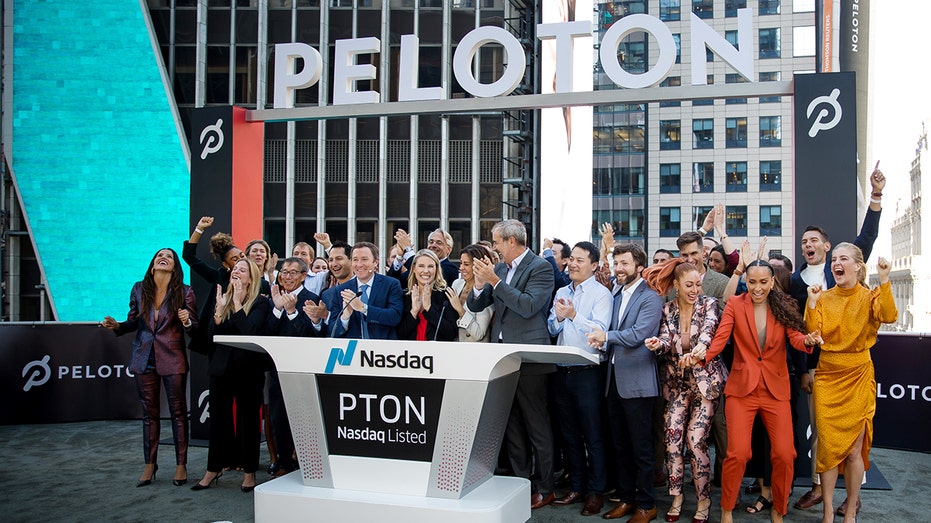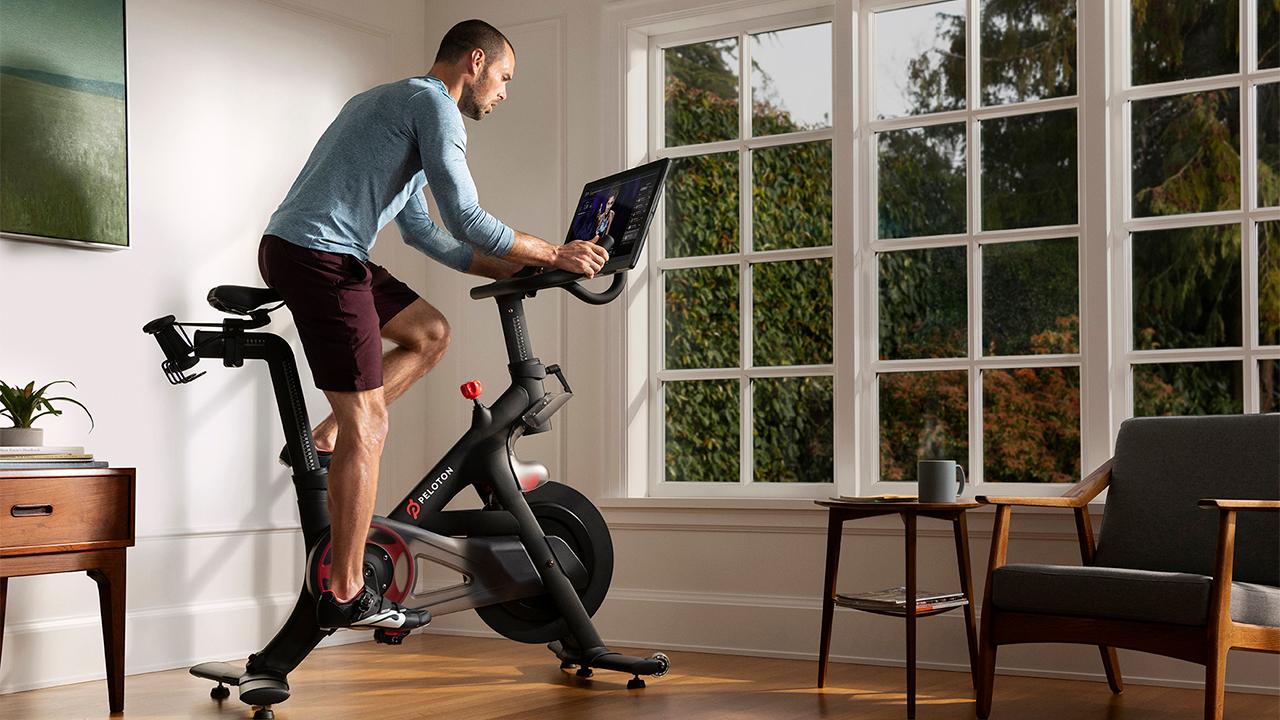Peloton buyers sick of months-long delays
Delays are primarily due to shipping logjams, particularly at ports
Even Peloton fans have their limits.
As Peloton Interactive Inc. races to meet demand for its connected stationary bikes and treadmills, promoting equipment it may not deliver until 2021, some would-be owners are losing patience as they endure monthslong delivery delays.
Consumers are griping online, flooding customer-service lines, defecting to competing brands and sharing tips to re-create the Peloton experience on rival bikes and treadmills.
Peloton is known for selling $2,000-plus bikes equipped with a screen that shows subscription workout classes. The company said it has nearly doubled subscriptions since March as the coronavirus pandemic has closed gyms and led more people to work out at home. In September, it dropped the starting price on its bikes to $1,895.
"We'd probably still be waiting today," said Debbie Bullen, of Newton, N.H., who ordered a $4,565 Peloton treadmill in early August, but canceled the purchase after a seven-week wait.
She said the machine didn't arrive on the scheduled delivery date and, after a series of calls to the company, a Peloton representative told her the treadmill wasn't yet at a warehouse and offered no new delivery estimate. Ms. Bullen instead purchased a NordicTrack treadmill, a Peloton rival, which she said arrived earlier than expected.
A Peloton spokeswoman said delays are primarily due to shipping logjams, particularly at ports as the bikes are transported to the U.S. from manufacturers overseas. She said port delays are difficult to predict and resolve. "The wait times right now are not how we want people to experience Peloton," she said.
| Ticker | Security | Last | Change | Change % |
|---|---|---|---|---|
| PTON | PELOTON INTERACTIVE INC. | 4.42 | +0.10 | +2.31% |
| NLS | NO DATA AVAILABLE | - | - | - |
On Peloton's Facebook page, posts promoting the brand and its classes spur commentary from angry buyers. A good-natured post on Thursday featuring Peloton user "Gus" spawned an exchange between customers over whose delay was worse.
"Canceled 15 minutes before the window. I'm in Michigan and bike is in California still apparently. December 9th is new date," read one post. "Is it sad I'm jealous of your delays? Had a delivery of 11/19 and pushed into January," another commenter said.
Online, in social media groups and via blogs, Peloton subscribers share advice on how to use the company's app with bikes and treadmills from other equipment makers.
In a recent letter to shareholders, Peloton acknowledged customers are struggling both with delivery delays and "unacceptably long" wait times for customer-service help. "We are doing everything we can to get our products to our prospective members as quickly as possible," the letter said.
Peloton's smaller rivals such as Nautilus Inc. and NordicTrack maker Icon Health & Fitness Inc. may benefit from the market leader's supply-chain woes. Nautilus, which also makes Bowflex workout systems of 1980s infomercial fame, offers lower-priced bikes and advertises a connected system compatible with Peloton's online classes.
DICK'S SPORTING GOODS DOUBLES DOWN ON HOLIDAY SHOPPING
Nautilus shares have surged above $15 from $1.50 a year ago, when the company was struggling with deep losses and sales declines. It now sports a market value of about $500 million, compared with more than $32 billion for Peloton.
Nautilus CEO Jim Barr took over in July 2019 with a plan to overhaul the Vancouver, Wash., company in part by accelerating its push into so-called connected workouts like those offered by Peloton. Nautilus makes its namesake exercise equipment as well as Schwinn and Bowflex bikes and treadmills.
The strategy was beginning to show promise before the pandemic, Mr. Barr said in an interview. Covid-19, however, has led to explosive growth in sales of bikes, treadmills and other exercise equipment. The most recent quarter was the most profitable in the company's 34-year history.
Sales of connected bikes have "been gangbusters," he said, and the ability to use the Peloton platform is a big draw. Nautilus expects total revenue between $540 million and $565 million this year, up at least 75% from 2019. Icon, which is closely held, expects 2020 sales to exceed $1 billion.

John Foley, co-founder and chief executive officer of Peloton Interactive Inc., center left, rings the opening bell during the company's initial public offering (IPO) at the Nasdaq MarketSite in New York in September 2019. Photographer: Michael Nagle
Mr. Barr said Nautilus also is getting hit by shipping delays, though it has managed to get wait times down to four to five weeks. If a customer "has waited five weeks and you say, 'Sorry there was a slow boat so you have to wait six weeks,' they're OK," he said.
He said the company alters its marketing to promote only products that are in stock.
Peloton continues to advertise on social media, through direct marketing, and in other channels as a way to promote the overall brand and to raise awareness, particularly in markets outside the U.S. where the bikes are less well known, the Peloton spokeswoman said.
CLICK HERE TO READ MORE ON FOX BUSINESS
"We're looking to get people to think about our community while not trying to stress our supply chain," she said. The company opted against any Black Friday or holiday promotions.
Peloton's supply-chain woes aren't weighing down the company's financial performance. The New York-based company reported its first quarterly profit in September, while the number of $39-a-month connected-fitness subscriptions for owners of Peloton bikes and treadmills more than doubled.
Peloton's share price has quadrupled since its initial public offering in September 2019. The company projects revenue of $3.5 billion to $3.65 billion for the fiscal year that ends June 30, roughly double the previous year's total. Peloton, as well as its competitors, have been making the case that it has a promising future beyond Covid-19.
The company's stock fell 25% earlier this month on promising news about a coronavirus vaccine developed by Pfizer Inc., as Peloton was one of several companies that took a share-price hit amid investor concerns that products popular during the pandemic might fall out of favor once there is a vaccine.
GET FOX BUSINESS ON THE GO BY CLICKING HERE
U.S. gyms are a $40 billion industry, while at-home fitness notches less than $4 billion in annual sales, said Mr. Barr, the Nautilus CEO, citing numbers from data-tracking firms. He said the disparity means the market he serves has room to grow even if there are fewer converts to at-home workouts after the pandemic.
Bruce Smith, founder and CEO of Hydrow Inc., which makes a rowing machine with the connectivity of a Peloton for which classes are taught from rivers around the world, expects some people to migrate back to gyms after the pandemic.
"One-third will go back as soon as they can," said Mr. Smith. "Another one-third will go back gradually, like people did to flying after 9/11. And one third will say, 'Holy crap, this thing is amazing,' and stay with it."




















